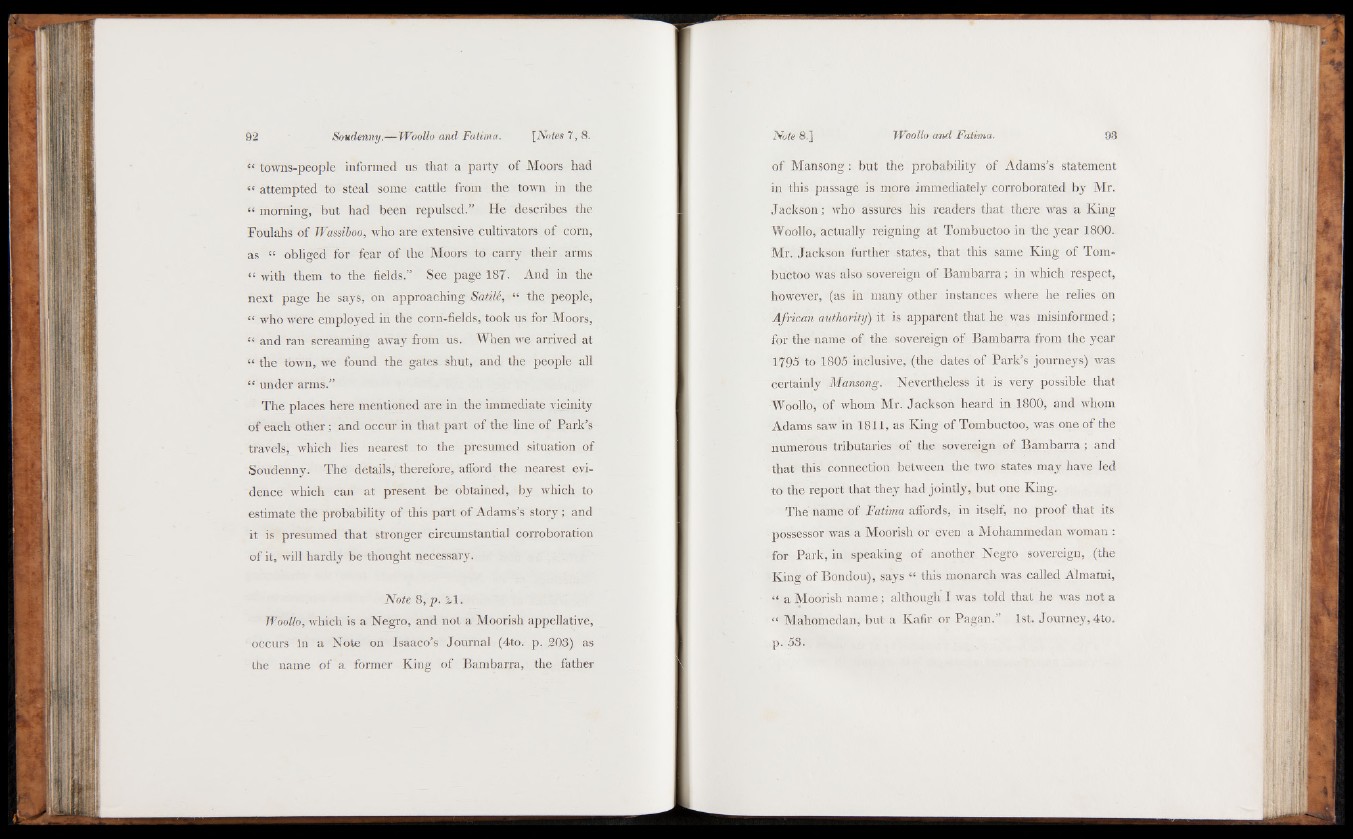
“ towns-people informed us that a party of Moors had
« attempted to steal some cattle from the town in the
“ morning, but had been repulsed.” He describes the
Foulahs of Wassiboo, who are extensive cultivators of corn,
as “ obliged for fear of the Moors to carry their arms
“ with them to the fields.” See page 187- And in the
next page he says, on approaching SatilS, “ the people,
“ who were employed in the corn-fields, took us for Moors,
“ and ran screaming away from us. When we arrived at
« the town, we found the gates shut, and the people all
“ under arms.”
The places here mentioned are in the immediate vicinity
of each other; and occur in that part of the line of Park’s
travels, which lies nearest to the presumed situation of
Soudenny. The details, therefore, afford the nearest evidence
which can at present be obtained, by which to
estimate the probability of this part of Adams’s story; and
it is presumed that stronger circumstantial corroboration
of it, will hardly be thought necessary.
Note 8, p. 'hi.
Woollo, which is a Negro, and not a Moorish appellative,
occurs In a Note on Isaaco’s Journal (4to. p. 203) as
the name of a former King of Bambarra, the father
of Mansong: but the probability of Adams’s statement
in this passage is more immediately corroborated by Mr.
Jackson; who assures his readers that there was a King
Woollo, actually reigning at Tombuctoo in the year 1800.
Mr. Jackson further states, that this same King of Tombuctoo
was also sovereign of Bambarra; in which respect,
however, (as in many other instances where he relies on
African authority) it is apparent that he was misinformed ;
for the name of the sovereign of Bambarra from the year
1795 to 1805 inclusive, (the dates of Park’s journeys) was
certainly Mansong. Nevertheless it is very possible that
Woollo, of whom Mr. Jackson heard in 1800, and whom
Adams saw in 1811, as King of Tombuctoo, was one of the
numerous tributaries of the sovereign of Bambarra; and
that this connection between the two states may have led
to the report that they had jointly, but one King.
The name of Fatima affords, in itself, no proof that its
possessor was a Moorish or even a Mohammedan woman :
for Park, in speaking of another Negro sovereign, (the
King of Bondou), says “ this monarch was called Almami,
“ a Moorish name; although I was told that he was not a
“ Mahomedan, but a Kafir or Pagan.” 1st. Journey, 4to.
p. 53.